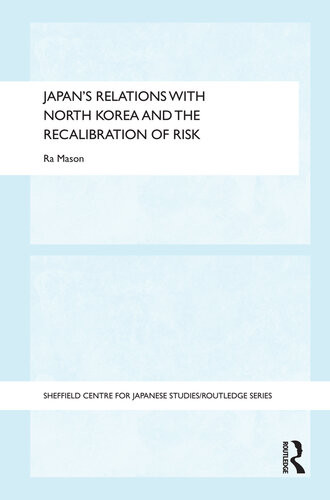

Most ebook files are in PDF format, so you can easily read them using various software such as Foxit Reader or directly on the Google Chrome browser.
Some ebook files are released by publishers in other formats such as .awz, .mobi, .epub, .fb2, etc. You may need to install specific software to read these formats on mobile/PC, such as Calibre.
Please read the tutorial at this link: https://ebookbell.com/faq
We offer FREE conversion to the popular formats you request; however, this may take some time. Therefore, right after payment, please email us, and we will try to provide the service as quickly as possible.
For some exceptional file formats or broken links (if any), please refrain from opening any disputes. Instead, email us first, and we will try to assist within a maximum of 6 hours.
EbookBell Team

4.4
32 reviewsNorth Korea’s contemporary relations with Japan have been fraught with tension. Tactics employed by Pyongyang have included abductions of Japanese citizens, missile launches over Japanese territory, intrusions into Japanese sovereign waters, and nuclear tests in defiance of Japanese and international condemnation. In light of the security risk the DPRK poses, this book examines how the state, market, and society in Japan have framed North Korea as a salient evil, and have in turn constructed and manipulated the risks posed by their neighbour.
Using the example of Japan’s post-Cold War responses to North Korea, this book studies the concept of risk in international relations, and its interactive relationship with domestic civil society. It focuses on how security risks are identified and re-evaluated by policy makers, mass media, and civil society stakeholders, and in doing so disentangles the complex processes by which Japan has framed and recalibrated risks in response to the DPRK. By exploring how risks identified with Pyongyang’s behaviour towards Japan have been mediated between the state, market, and society via mainstream discourse in Japan, Ra Mason highlights the way in which these processes are causally linked to key actors’ conceptions of risk. Indeed, this book provides an original theoretical framework – distinguishing between risk and traditional threat perceptions – through which to address issues of national security and identity, as well as the norms which inform them.
Japan’s Relations with North Korea and the Recalibration of Risk will be welcomed by students and scholars across a wide range of fields including Japanese politics, Asia-Pacific studies, international relations, and security studies.